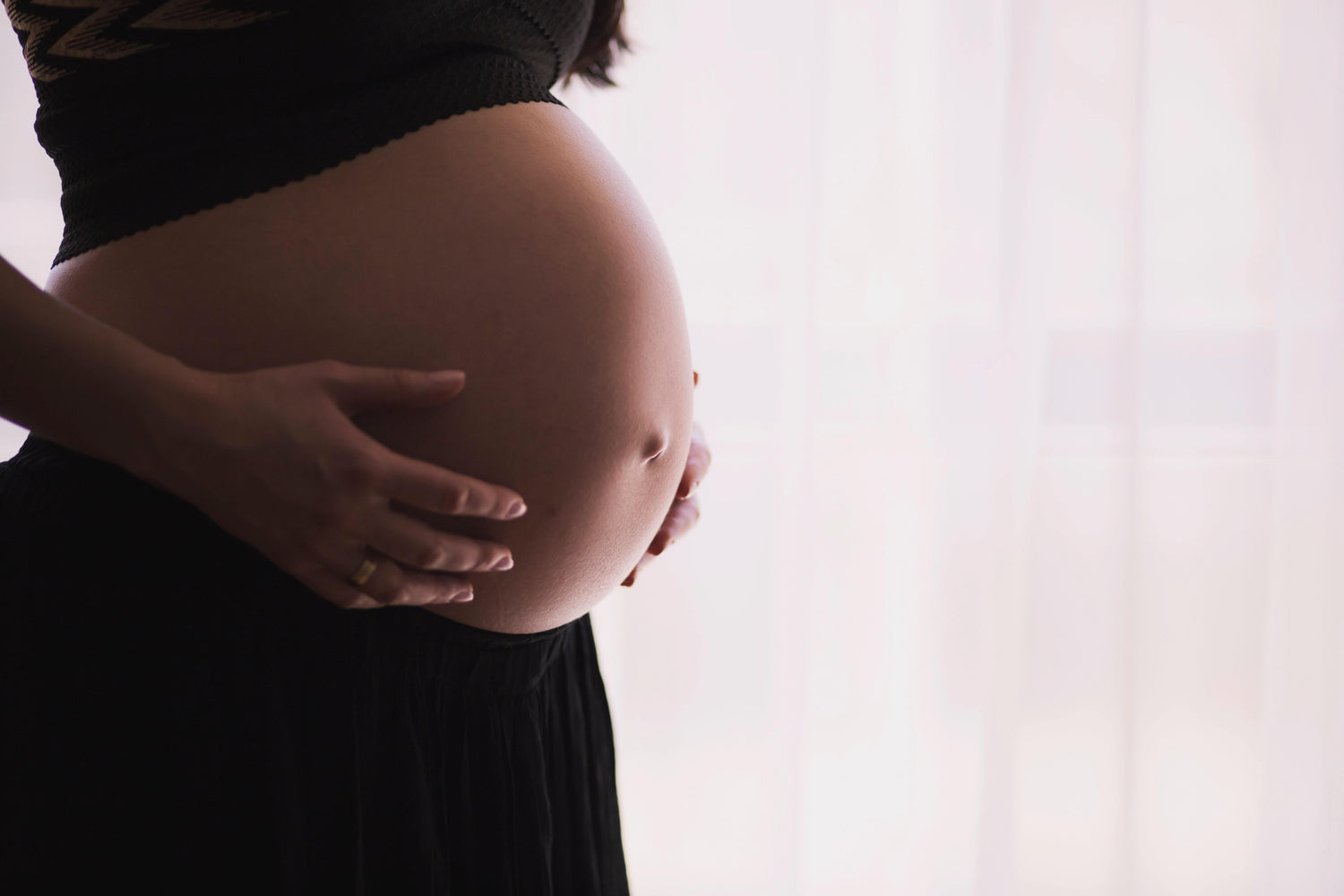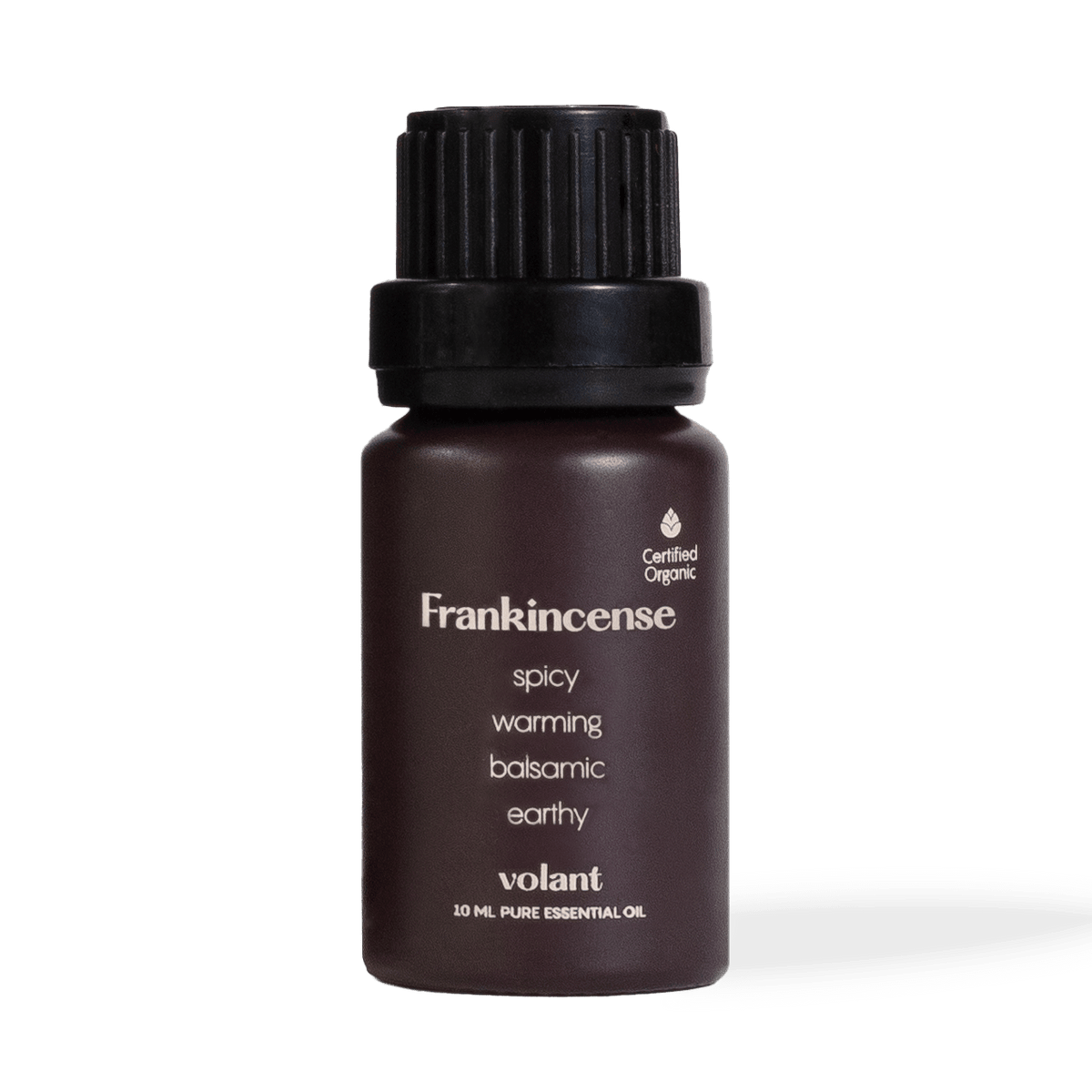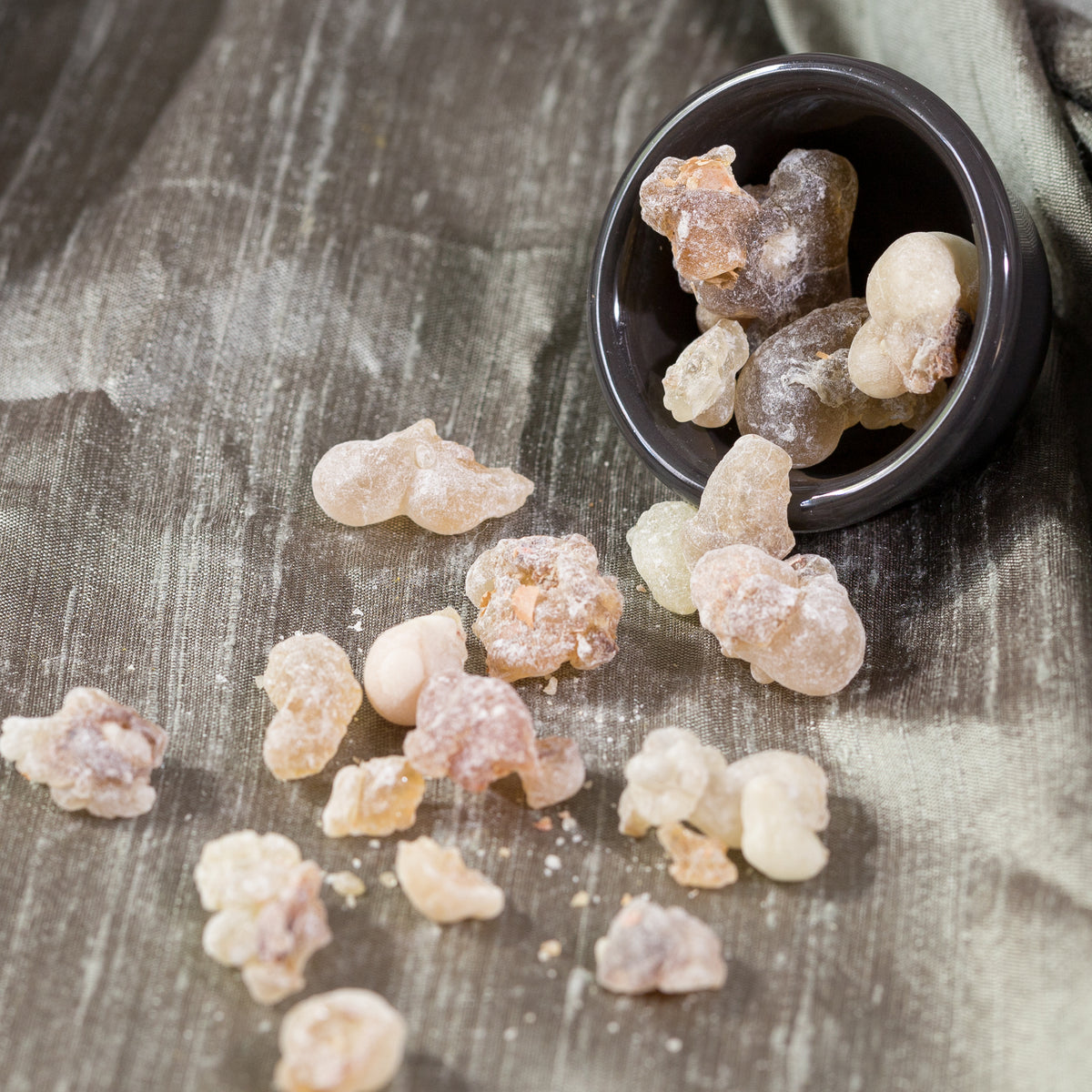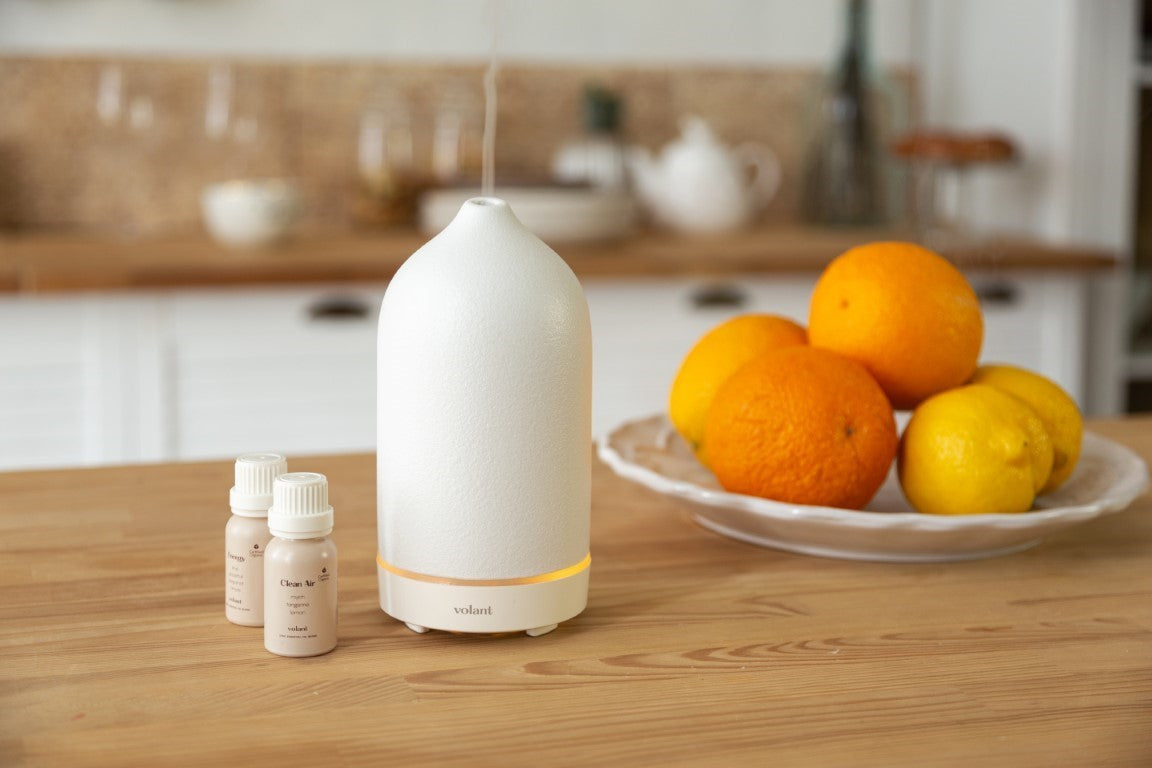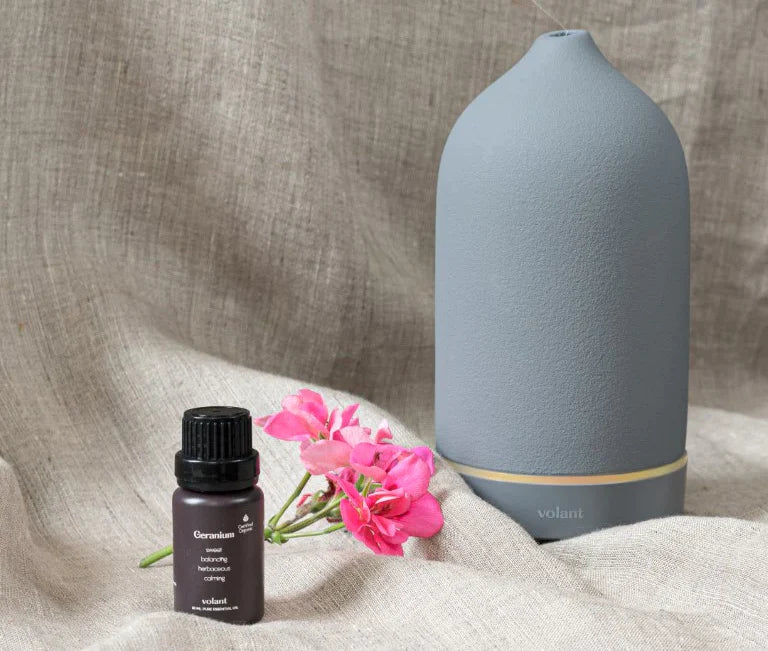Essential oils can help with many common pregnancy symptoms such as back pain, nausea and pelvic girdle pain, along with providing further benefits during labour. However, it’s important to be aware of a few safety tips when using essential oils during pregnancy.
What is aromatherapy?
Aromatherapy is the practice of using essential oils for therapeutic benefit. This holistic therapy has been proven to help improve both your mental and physical wellbeing.
During aromatherapy, you will inhale the aroma of essential oils. The scent is detected by sensors in your nose which connect directly to the limbic system within your brain. This limbic system is responsible for controlling your emotions, meaning that the essential oils inhaled are able to have a direct influence on your emotions.
Is aromatherapy safe during pregnancy?
The benefits of aromatherapy during pregnancy are vast. However, caution should always be taken when using aromatherapy during pregnancy.
All essential oils have the potential to cross the placenta to your baby due to their chemical composition, but this does not mean that all essential oils are harmful to your baby.
Some essential oils are safe to use at specific times during your pregnancy whilst others should be avoided completely. For this reason, we’d always recommend speaking to a qualified aromatherapist who is trained in the use of aromatherapy during pregnancy before deciding which essential oils to use.
If you decide to use your essential oils topically during pregnancy, say for a prenatal aromatherapy massage, it’s best to do a skin patch test with your chosen essential oil and carrier oil to make sure it doesn’t irritate your skin. Rub a small amount of the mixture onto a small patch of your skin 24 hours before your prenatal massage.
Read more about performing a patch test with essential oils here
If your partner is giving you an aromatherapy massage, check with your midwife which massage strokes are safe during your pregnancy. If you decide to use a massage therapist, ensure that they are qualified and insured to treat pregnant women.
Essential oils that should always be avoided in pregnancy include aniseed, arnica, basil, cypress, fennel, juniper, nutmeg, sage, juniper berry, marjoram and rosemary.

What are the benefits of using aromatherapy during pregnancy?
Many women find essential oils very beneficial during pregnancy. Some oils are diffused and inhaled with the aroma promoting your mental wellbeing, whilst others are mixed with a carrier oil to be used topically, for example through massage.
During pregnancy, aromatherapy can help to reduce the stress, fear and anxiety that many women feel. This could be worries about the birth or about parenthood in general. Essential oils can also be helpful for mothers who are experiencing both prenatal and postpartum depression or anxiety.
Aromatherapy can also help with some of the common pregnancy symptoms, including nausea, tiredness, backache, swollen ankles and insomnia. Reducing the discomfort and inconvenience of these conditions can enhance the mother’s enjoyment of her pregnancy, allowing her to look forward to the birth of her baby.
Many women also choose to use essential oils during their labour to promote relaxation and enhance their birth experience. More and more hospitals are beginning to realise the benefits of aromatherapy during labour, with many hospitals now actively encouraging its use.
How to use aromatherapy during pregnancy
There are many different ways that you can use essential oils during your pregnancy. This includes topically during massage, inhalation by diffusion, and by adding essential oils to your bath.
Aromatherapy massage for pregnancy
Aromatherapy massage can be particularly beneficial during pregnancy, but you’ll need to dilute your essential oils first. Mix one or two drops of your essential oil with a teaspoon of carrier oil such as sweet almond oil, coconut oil or grapeseed oil.
Inhaling essential oils during pregnancy
Many women enjoy the benefits of inhaling the aromas of essential oils during their pregnancy. Simply add a few drops of essential oil to your diffuser and enjoy the gentle aromas that it creates. Of course, some of your favourite scents may actually become turn-offs or make you feel ill in pregnancy where they didn’t before, so play around with scents until you find the ones that work for you.
Aromatherapy bath during pregnancy
Warm baths can be particularly soothing during pregnancy, especially if you’re suffering from the aches and pains that childbearing can bring. Essential oils can enhance these benefits.
To add essential oils to your bath, you’ll first need to mix a few drops of the essential oil with a teaspoon of carrier oil. If you haven’t got any carrier oil on hand, full-fat cow’s milk can also be used to help the oil disperse throughout the water.

Aromatherapy for morning sickness
Many women experience nausea or sickness during their first trimester. Often referred to as morning sickness, this unpleasant pregnancy symptom can actually occur at any time of the day, and some women are debilitated by their sickness.
Aromatherapy can help to ease your sickness, allowing you to better enjoy those early days of pregnancy. Women may find essential oils particularly useful if they are suffering from hyperemesis gravidarum, a more severe form of morning sickness that may result in weight loss and may persist throughout the second trimester as well as the third.
Different women prefer different essential oils for helping with sickness in early pregnancy, so you may need to try a few before finding the right essential oil for you. Common oils which are used to help with pregnancy sickness include lemon oil and peppermint oil.



